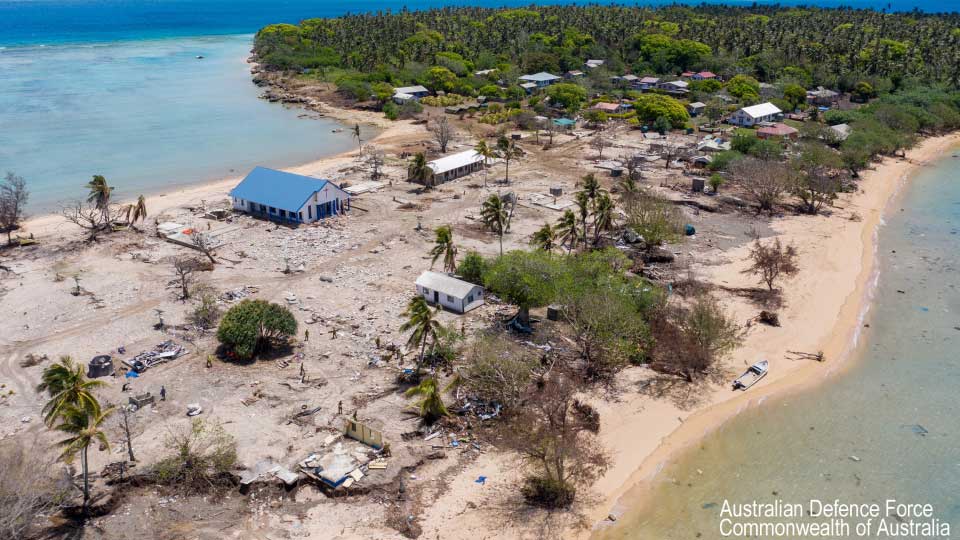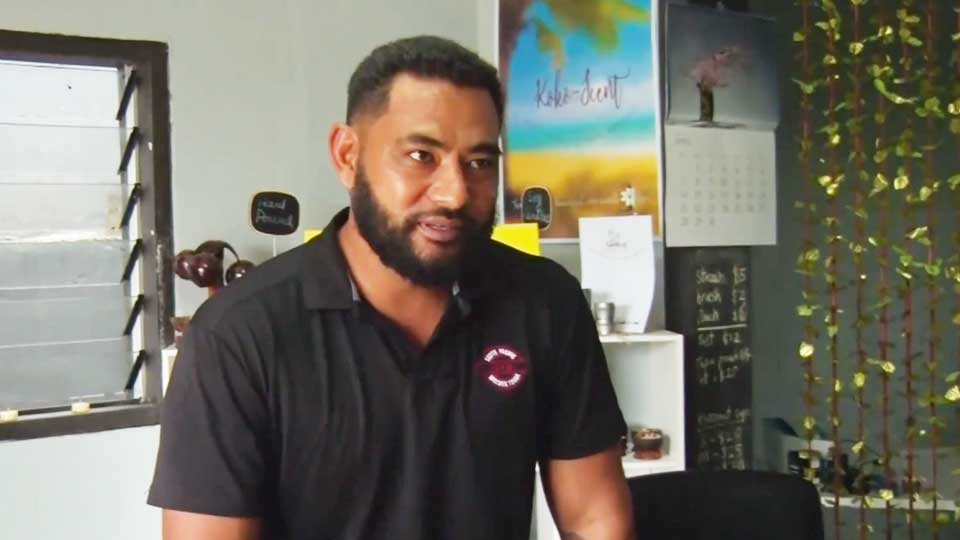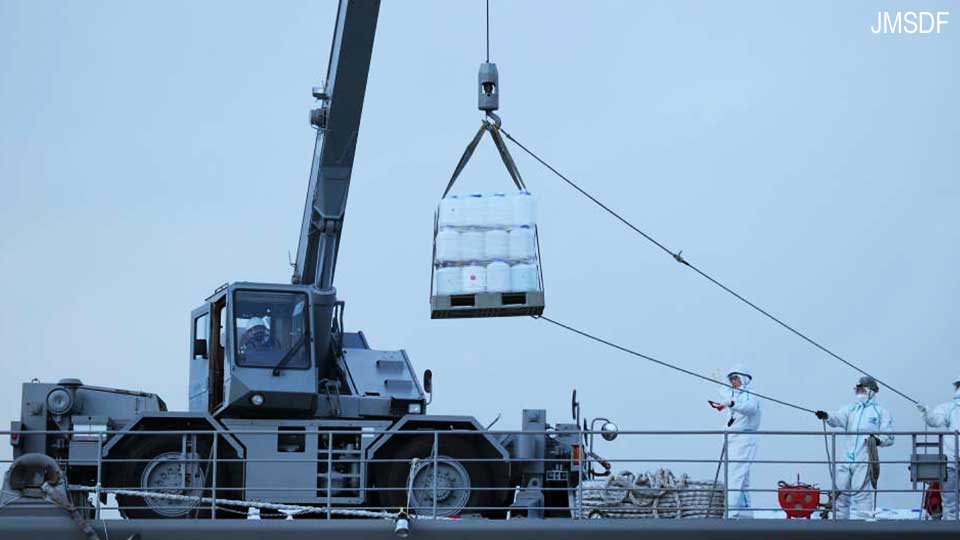The recovery effort is slow-going, with ash and debris still strewn across most of the islands.
Government officials are especially concerned about the long-term impact on agriculture – which supports 86 percent of all households – and fisheries, another key industry.
Many people who rely on the ocean lost their equipment and vessels in the tsunami. For others, the biggest problem is the water itself.

"The tsunami has taken all our harvest away," says second-generation Japanese-Tongan Masatada Kawaguchi. He farms mozuku seaweed in the country's capital, Nuku'alofa. He usually exports about 100 tons, or 90 percent of his annual output, to Japan.
He used to start production in July, but the ash and debris in the sea mean that might be difficult this year.
"We need to see if there's any contamination in the sea and assess the impact on the mozuku to see if it's still fit for export," he says.

Pandemic hinders relief effort
Authorities in Tonga have largely managed to keep the coronavirus pandemic at bay for the past two years. Their efforts are now coming undone. Infections have been increasing since the eruption.
The first-ever confirmed cases of community transmission prompted a lockdown in February. Officials are ordering locals and international aid workers to avoid person-to-person contact.
Some organizations trying to help the country's recovery are concerned that the measures could hamper the delivery of aid from other countries, especially to remote islands.
"This lockdown does not allow us to field more staff," says UN Food and Agriculture Organization official Xiangjun Yao.
"Assessments are very much needed in a very timely manner. As for fisheries, its full recovery may take even longer than three years."

Paula Ma'u, who is in the second-highest position in the government's disaster management operations, says more than 150 people from remote islands remain in evacuation centers. They cannot return until their homes are rebuilt.
"We need more cooperation from the international society," says Paula Ma'u. "Not only financially, but also technically – humanitarian aid – during this most difficult time for Tonga."

